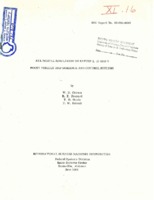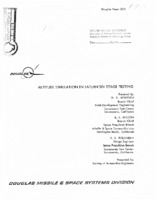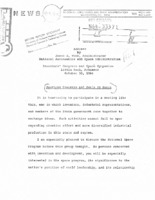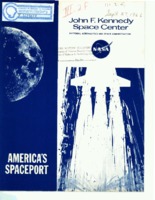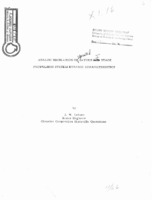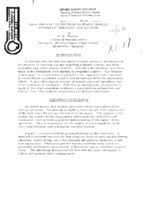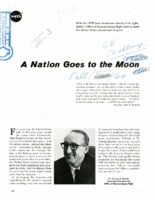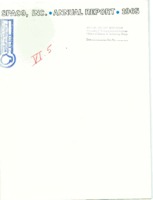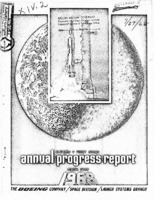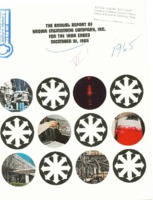
Browse Items (8239 total)
Sort by:
-
"All Digital Simulation of Saturn I, IB, and V: Boost Vehicle and Guidance Control Systems."
The introduction notes, "The Saturn V launch vehicle is being developed by the National Aeronautics and Space Administration's George C. Marshall Space Flight Center for Project Apollo; Saturn I and Saturn IB vehicles are providing the early testing and support for Project Apollo. The nerve center of the Saturn is its guidance and control system. An airborne digital computer provides the link which closes both the guidance and control loops,making verification of the flight computer program of vital importance. During a powered flight this onboard digital computer program can be divided into four major parts:a) guidance, including navigation, b) control, c) vehicle sequencing, and d) computer telemetry." -
"Altitude Simulation in Saturn SIV Space Testing."
This paper was presented to the Society of Automotive Engineers. The abstract reads, "The Douglas Aircraft Company has been involved in testing the Saturn SIV stage at the Sacramento Test Center for the past two years. The propulsion system for the SIV stage consists of six (6) Pratt & Whitney Aircraft Company rocket engines which are designed specifically for high altitude start and operation. During static firing tests of this engine at sea level, a steam jet ejector in combination with a diffuser, are used to simulate altitude conditions. The intent of this paper is to examine the performance of this altitude simulation system, and to discuss problems encountered in making it operational." -
"American Progress and Goals in Space," address by James E. Webb.
This address was given by James E. Webb, Administrator, National Aeronautics and Space Administration, at the Inventors' Congress and Space Symposium, Little Rock, Arkansas. -
"America's Spaceport."
Guide to John F. Kennedy Space Center, including an introduction from Center director Kurt Debus. -
"Analog Simulation of Saturn S-IB Stage Propulsion System Dynamic Characteristics."
This copy has handwritten notes that change the title to read, "Analog Simulation of Uprated Saturn I Stage Propulsion System Dynamic Characteristics." The abstract notes, "The purpose of this paper is to present the techniques and logic employed in the development of an analog computer model to simulate Saturn IV first stage propulsion system dynamic characteristics. Restraints, problem areas, and major assumptions are included." -
"A Nation Goes to the Moon."
Written by NASA Office of Manned Space Flight Associate Administrator George E. Mueller, this is an article from G. E. Challenge, Fall 1966, page 26 to 32. -
"Saturn V First Stage Annual Progress Report: Fiscal Year 1968."
The report covers June 30, 1967 through June 27, 1968: Contract NAS8-5608, Schedules 1 and 1A, July 27, 1968. Prepared by J. P. Delaloye, Management Reporting and Analysis; Supervised by D. G. Valentine, Management Reporting and Analysis; Approved by R. F. Terry, Program Reports; D. H. Creim, Michoud, Program Planning and Reporting Manager; E. K. Cooper, S-IC Program Executive.
